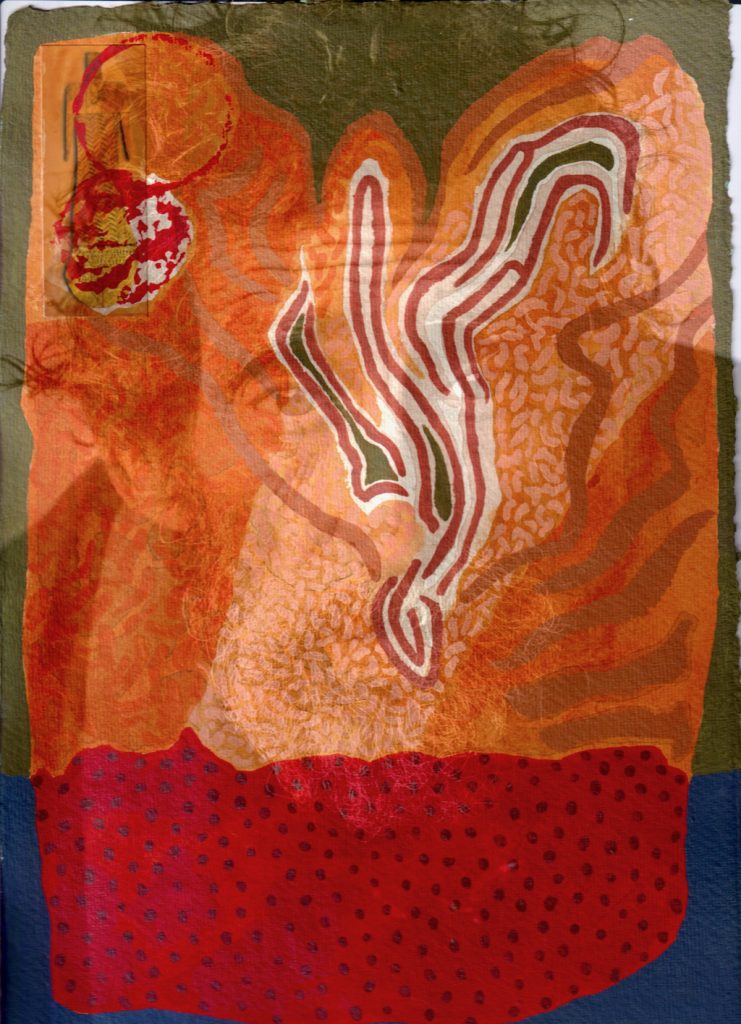
The duende is an enabling figure, like Freud’s idea of the uncanny or Proust’s perception of involuntary memory, because it makes something visible that might otherwise be invisible; that has been swimming under the surface all along.
Edward Hirsch (2002) The Demon And The Angel: Searching For The Source of Artistic Inspiration Orlando, Harcourt Inc. p. xiii.
Not all cunning folk were women. I think it’s relevant that Nuala Ní Dhomhnaill writes, remembering John Berryman, that a “female energy” is accessible to the male poet who never assumes the possession of a distinct and separate “self”. She also writes of being saved from madness through ‘transformation and release into a world of multiplicity as opposed to duality’; a release she attributes to living in the ‘completely different’ linguistic worlds of Irish and English. She links this in turn to the Irish language’s capacity for “falling out of historical time”, for facilitating moving freely in and out of the ”otherworld”’ that ‘exists beyond the ego-envelope’ (2005: op. cit. pp. 19-20). Observations that remind me of the role of ambiguity and context in Gaelic. I also see parallels with moving between written and other forms of artistic “language”. However, perhaps the central issue here is James Hillman’s insistence that ‘self is an internalization of community’, in which we must include the dead, if only genetically, and that we are ‘constituted of communal contingencies’ (1994 ‘”Man is by nature a political animal” or: patient as citizen’ in Sonu Shamdasani & Michael Munchow (eds) Speculations after Freud: Psychoanalysis, philosophy and culture London & New Yok, Routledge, pp. 34-35)? Poetry released Ní Dhomhnaill into a relational world of multiplicity through a process that Robert Bly sees as going ‘much deeper than the ego, and at the same time is aware of trees and angels’(Robert Bly quoted in Edward Hirsch (2002) op. cit. p. 210). Both poets seem attuned to the ancient notion of ‘daimones… associated with particular places’ (Edward Hirsch (2002) op. cit. pp. 61-62), liminal beings that Christian orthodoxy associated with paganism, demons and “black” magic rites, with Daumal’s “sub-human”.
Dorothy Carrington encountered a world of multiplicity, of poetic expression and extraordinary psychic ability similar to prophesy, by meeting a Corsican mazzera (Dorothy Carrington 1995 op. cit. pp. 98-99). I marked a section of Carrington’s account of that meeting when I first read The Dream-Hunters of Corsica and wrote above it “KR?”(the initials of Kathleen Raine, to whom the book’s dedicated). My question to myself was prompted by Carrington’s description both of the mazzera’s exceptional personal qualities and the fact that she was ‘totally enslaved to her calling’ and an absolute belief in her own destiny (Ibid. pp. 99-100). This raised a question about Raine’s “cursing” Gavin Maxwell which, he believed, resulted in his subsequent and considerable misfortunes. Raine states both that her words ‘came from beyond myself’ and a belief both in ‘the power of thought to accomplish events’ and that ‘a curse always recoils upon the person who utters it’, seeing hers as taking ‘full effect, both on Gavin and myself’ (Kathleen Raine 1991 op. cit. p.312). Thus a poet dedicated to “white” poetry also acknowledges the power to curse? In Yeats, The Tarot And The Golden Dawn she shows guarded approval of ‘an unbounded eclecticism’ which she accepts, while it may be ‘unscholarly’, often accompanies ‘vital movements of the arts’ (1976 Yeats, The Tarot And The Golden DawnDublin, Dolman Press p. 2). The Golden Dawn’s mystical philosophy and magic were, in Yeats’ words, ‘an enlargement of the folk-lore of the villages’, a recalling of: ‘certain forgotten methods’, concerned chiefly with ‘how to suspend the will that the mind become automatic and a possible vehicle for spiritual beings’ (Ibid. p. 7). Yeats himself identified with the Tarot Fool ‘who exchanges the illusion of permanence, security, and identity for the blind pilgrimage which is everyman’s destiny, and therefore in some sense sacred’ (Ibid. p. 33).Despite her desire to enrol Yeats to her own position, Raine acknowledges his ultimate allegiance to the ambiguities of The Fool.